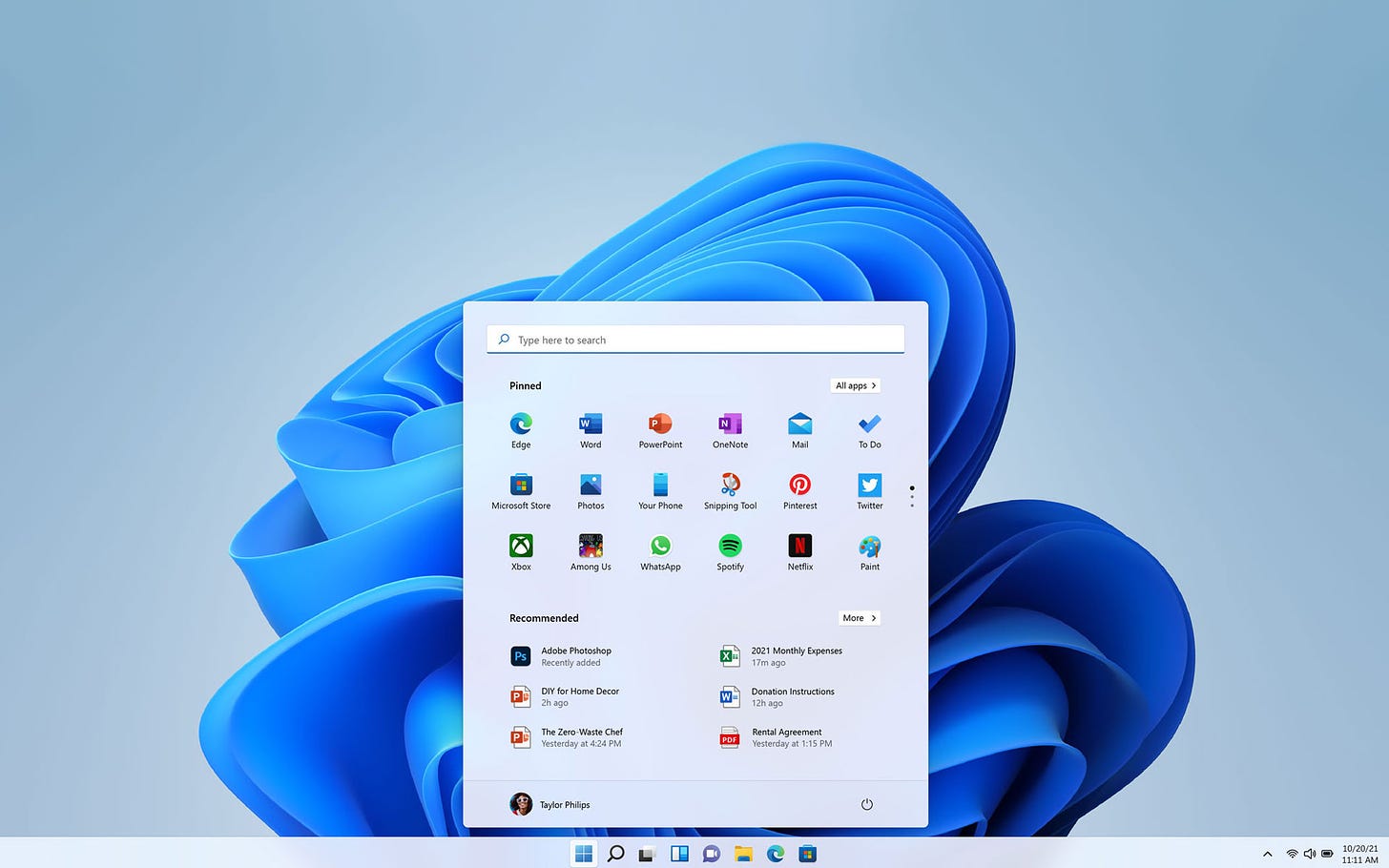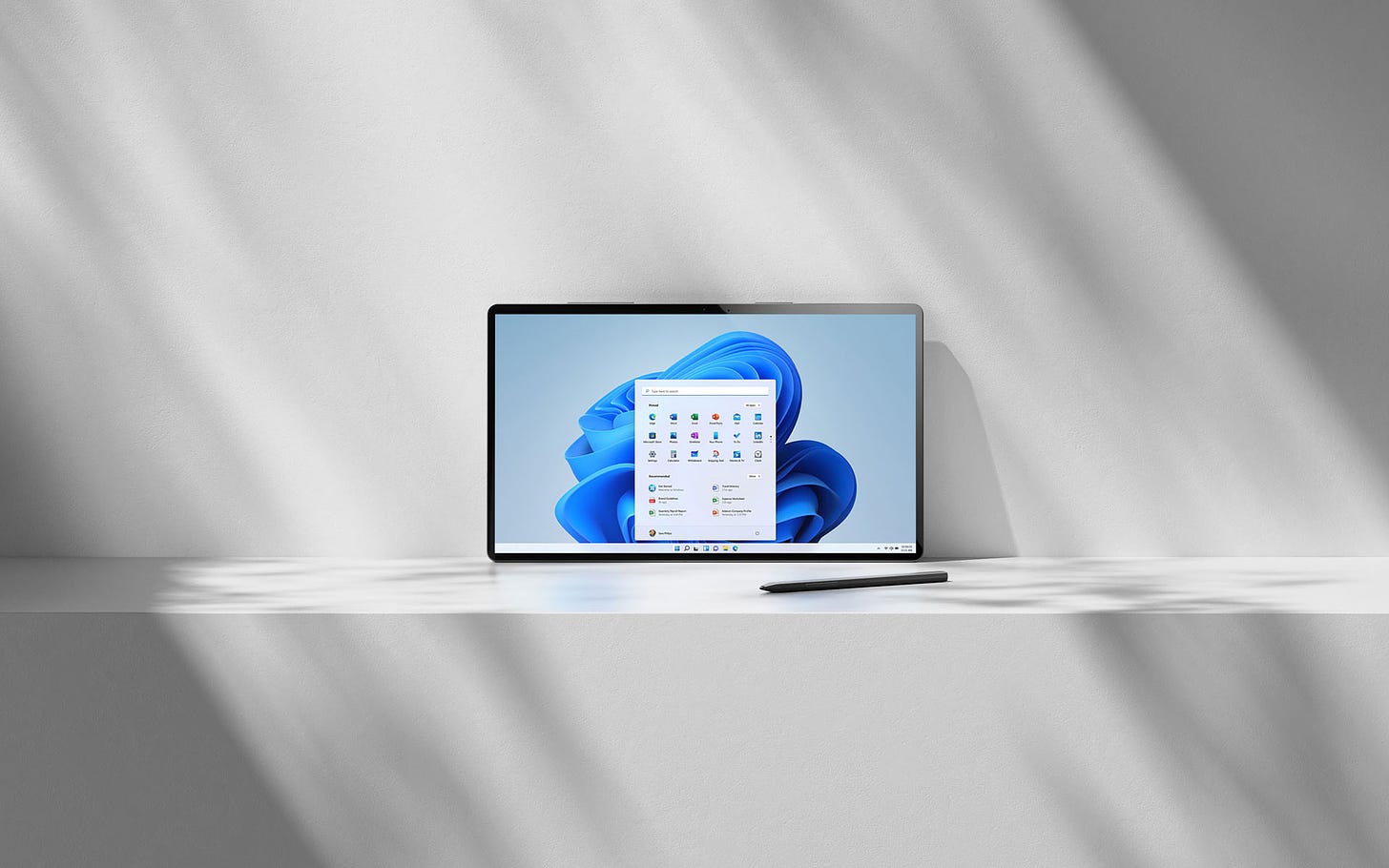Windows 11 is official - but is Microsoft up to the challenge?
The Redmond giant unveils the successor of the most popular OS today, a number of questions remain

As expected - the leak of a prerelease version of the product last week spoiled all surprises, unfortunately - Microsoft unveiled Windows 11, the next version of its computer operating system set to someday replace the most popular on the planet right now, Windows 10. The company confirmed that an upgrade to Windows 11 will be offered free of charge to all current Windows 10 users "this holiday" (so November sounds about right). Windows 7 and Windows 8 users are not offered that option, so all the millions of people who avoided upgrading to Windows 10 in the last five years will now have to if they're interested in using Windows 11.
The system requirements of the new version are quite modest by today's PC standards, but they are a bit higher than the most recent Windows 10 ones: consumers will now need a 64-bit processor, 4GB of RAM, 64 GB of available storage space and a 720p display at the very least (there are some other prerequisites such as a Secure-boot capable UEFI BIOS and support for TPM 2.0). Users who are in doubt as to whether their PC is eligible for the free Windows 11 upgrade can click this link (it's a direct download), install and run the PC Health Check app in order to make sure.

Everything that was leaked last week - and a lot of bits and pieces of information that have been making the rounds during the last year or so - was officially confirmed. Windows 11 comes with a refreshed user interface that is more rounded, is making use of softer shadows and transparency, is spruced by subtle animations and generally looks modern compared to the original Windows 10. There are new options for window management, app grouping and virtual desktop spaces, while Widgets make a comeback with their own configurable panel. The Microsoft Store is also redesigned and can now offer apps of several different kinds of technologies, including Android apps (!) via an Amazon Appstore native app.
Speaking of apps, Microsoft has built Teams right into Windows 11, placing it on the taskbar by default in order to promote it as the "system way" of contacting others by way of text and/or video. Not unexpected, still somewhat... unsubtle. On the gaming front, Microsoft announced what everyone more or less expected: a redesigned Xbox app (through which PC gamers will also be able to manage the content of their Game Pass subscriptions), a few new functions such as Auto HDR and Direct Storage (both already implemented in Xbox Series S/X), as well as the broadest possible support for gaming hardware and accessories.

Microsoft promises faster operation, enhanced security and a more streamlined updating experience in Windows 11. The company claims that it has worked closely with Intel, AMD, Qualcomm and others so as to tap into the advanced features of their processors and chipsets. Even if this does not boost OS performance as much as it first sounds like it will, it should make a difference in efficiency and battery life, boot and restart times, "go to sleep" and "wake up" functions and a number of other things.
Windows 11, based on what was shown today, is not overly ambitious or fantastically innovative: it is an operating system clearly based on Windows 10 with added functionality and some nice flourishes here and there. The refreshed user interface is certainly welcome, though, and all "the little things" do add up, making this a desirable, obvious upgrade for Windows 10 users. Microsoft has worked with PC manufacturers once again on promoting new systems, too, so the first new desktop, laptop and hybrid PC models bearing the "Windows 11-Ready" tag will probably start appearing in time for the "back to school" season.

A number of questions regarding Windows 11 remain, though, and will have to be answered in time. We still have no idea how they will perform compared to Windows 10 on the same hardware, we have no idea if Microsoft plans to offer better (as in problem-free and trustworthy) support for Windows 11 than it did with Windows 10, we have no idea of whether the company's latest push for PC gaming support is real this time around or just a useful marketing tool for the company's entertainment subscription efforts (although during all the previous times this happened there was no Game Pass of course).
Windows 11 is an interesting upgrade, yes, and - at the very least - we now know what Microsoft was doing with Windows 10 during the last few years of substandard support it offered for them: it was working on their successor. What the Redmond giant now has to prove is that this work brought about not just a better operating system, but some much-needed changes in its own mentality as a software company. Cross fingers?


